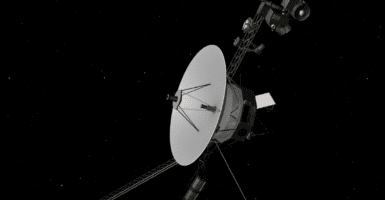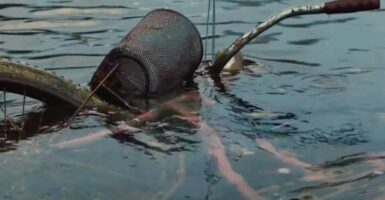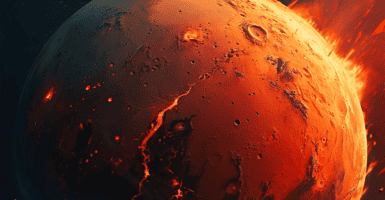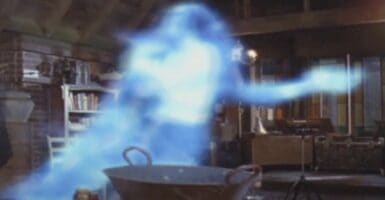Rosetta Shows That Earth’s Water Didn’t Come From Comets
This article is more than 2 years old
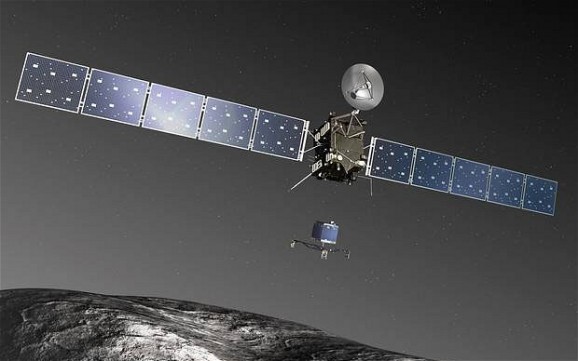 One of the reasons the ESA launched the Rosetta spacecraft, which sent the Philae lander down to the surface of Comet 67P/Churyumov-Gerasimenko last month, was to study the composition of the comet. They are the oldest celestial bodies, so they contain chemical clues to how the Solar System formed, and perhaps how life arrived on our planet. Like asteroids, comets are also known to contain water, and scientists have theorized that just as life may have hitched a ride to Earth aboard one, perhaps water did too. But some of Rosetta’s early findings challenge that idea.
One of the reasons the ESA launched the Rosetta spacecraft, which sent the Philae lander down to the surface of Comet 67P/Churyumov-Gerasimenko last month, was to study the composition of the comet. They are the oldest celestial bodies, so they contain chemical clues to how the Solar System formed, and perhaps how life arrived on our planet. Like asteroids, comets are also known to contain water, and scientists have theorized that just as life may have hitched a ride to Earth aboard one, perhaps water did too. But some of Rosetta’s early findings challenge that idea.
As you know, water contains two hydrogen atoms and oxygen atom, H20. But according to data recently published in Science, water from Comet 67P has three times more deuterium than normal, or more accurately, than terrestrial water molecules. Deuterium is a heavy isotope of hydrogen, and is a common element on Mars (and not so much on Earth). On our planet, roughly .0003% of water molecules contain deuterium.
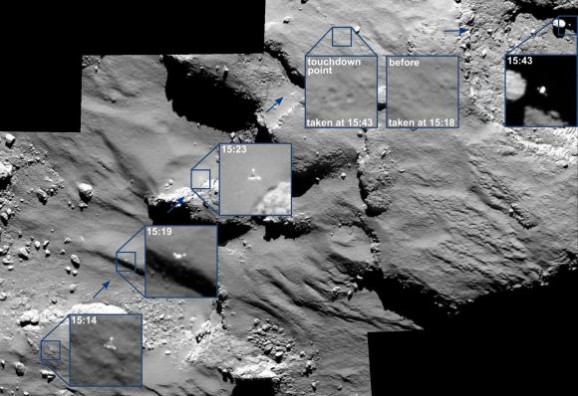 Comet 67P has so much deuterium in its water that if comets with a similar composition crashed into Earth, we would have a lot more than we doe today. Earlier studies indicate that it’s unlikely comet from the Oort Cloud delivered Earth’s water. 67P is thought to come from the Kuiper Belt region that extends from Neptune’s orbit out towards the furthest reaches of the Solar System. A few years ago, another comet from the Kuiper belt was found to contain water chemically similar to that on Earth. Scientists will be looking to replicate that finding, or to help describe its discrepancy from what they found on Comet 67P.
Comet 67P has so much deuterium in its water that if comets with a similar composition crashed into Earth, we would have a lot more than we doe today. Earlier studies indicate that it’s unlikely comet from the Oort Cloud delivered Earth’s water. 67P is thought to come from the Kuiper Belt region that extends from Neptune’s orbit out towards the furthest reaches of the Solar System. A few years ago, another comet from the Kuiper belt was found to contain water chemically similar to that on Earth. Scientists will be looking to replicate that finding, or to help describe its discrepancy from what they found on Comet 67P.
Provided that Comet 67P isn’t an anomaly, the findings suggest that comets aren’t the source of Earth’s water, and probably aren’t the source of other organic compounds, either. These results raise—or raise again, for the umpteenth time—the question of where Earth’s water and carbon came from, if not comets.
One possible answer is Mars. Another possibility is asteroids. We might think of asteroids as big, dry rocks, but billions of years ago, “asteroids could well have had much more water than they have today,” says Rosetta scientist Kathrin Altwegg. This is one of the reasons companies such as Planetary Resources have their sights set on mining asteroids—water is just one of the valuable resources they have to offer. The opportunity for Han Solo to show off his ace pilot skills is another.


